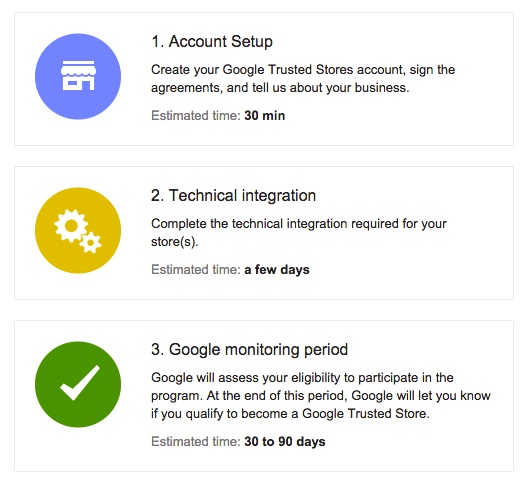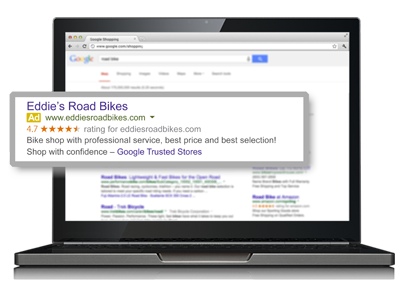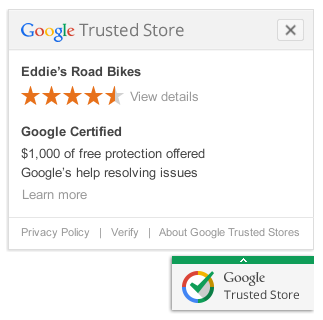Last month, Google made an announcement that joining Google Trusted Stores was simpler than ever before. Instead of submitting shipment and cancellation feeds to apply, now all you need to do is add a couple snippets of code, and follow a few steps:

So if you sell online, consider learning more about Google Trusted Stores – it could give you an edge from the search results to the click to the conversion.
Let’s look closer at that now.
In the search results, reviews that can be collected via the Google Trusted Stores program can also be eligible to show as seller ratings on your ads, like so:

Review extensions are also a great way to show that your business is a trusted one, and you can highlight your Trusted Stores certification in these extensions, too:

Once the shopper gets to your site, you can instill more confidence by displaying your Trusted Stores badge:

When the shopper is considering a purchase, you can give added assurance to him because the purchase is backed by an opt-in purchase protection plan (limited to $1,000 in lifetime claims) as part of the Trusted Stores program.
This helps the shopper resolve any issues with you, the merchant, via Google – if the issue is unable to be resolved between your business and the customer. (You may never need to use it, but it’s an added bonus that could help the shopper seal the deal.)
If you’re ready to get started with Google Trusted Stores, you can learn more about setting up an account, here. You’ll have to meet the guidelines, which means that you:
- Are a U.S.-based merchant, and your website content and customer service is conducted in English
- Fill 200 or more orders online monthly
- Have a customer service team that responds within one business day to inquiries
- Provide accurate estimated shipping dates (for items not backordered)
- Don’t sell restricted products
There’s actually quite a bit more that Google looks at to evaluate the business. Once you’ve signed up, you enter a qualification period, where Google collects data and assesses it.
If you end up being amongst those that can call themselves a Google Trusted Store, you just might have that competitive edge you need to drive more revenue from your PPC program.






